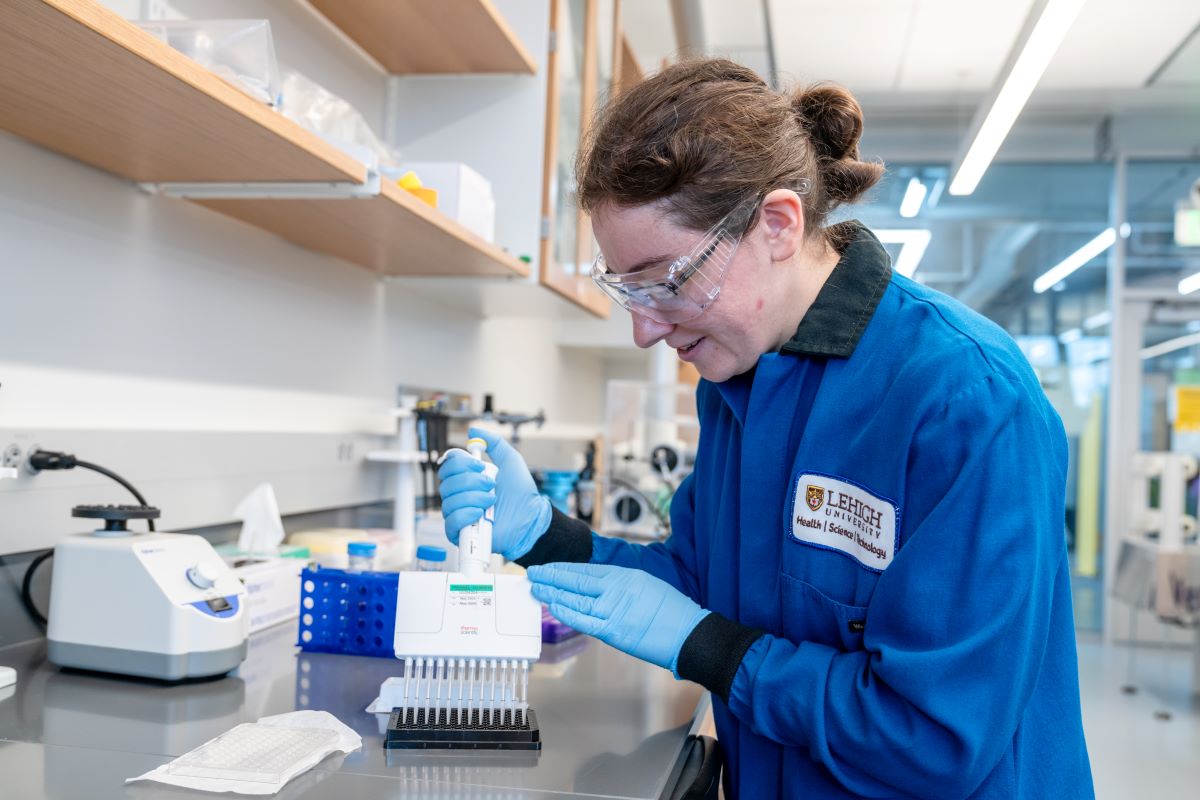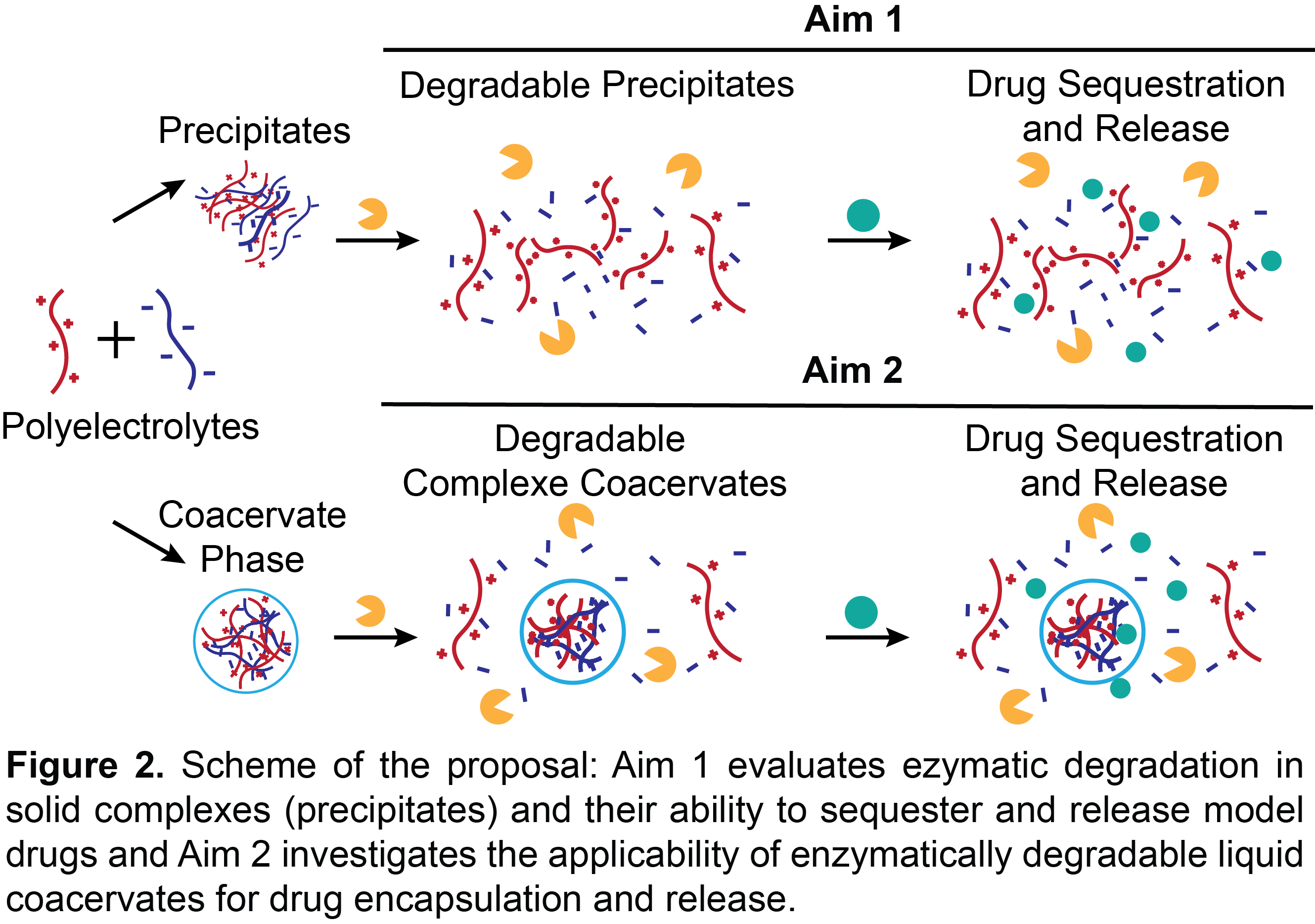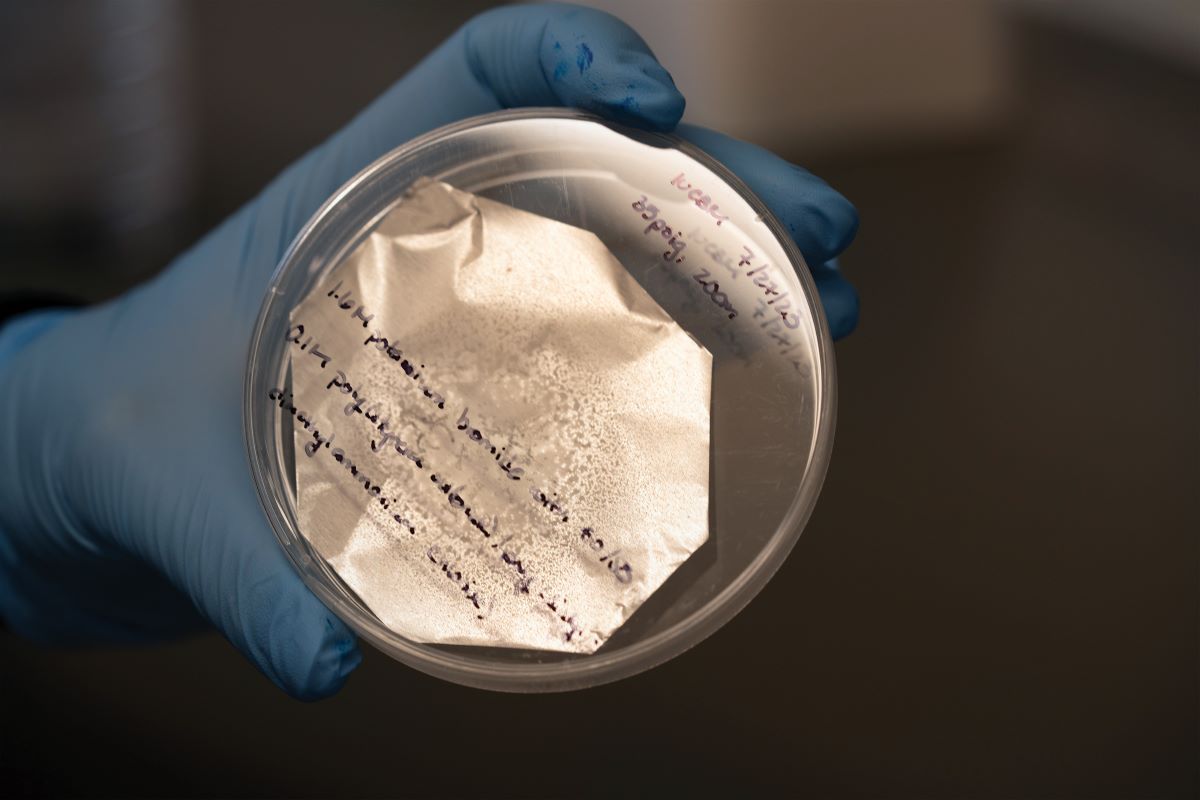
Imagine you’re deep in the backcountry on a hiking trip, and you fall and rip a deep gash in your lower leg. You’re a two-day walk away from proper treatment. After you stop the bleeding, your concern becomes keeping the wound clean.
Now, imagine you had just the thing in your first aid kit—a spray-on bandage embedded with a mild painkiller and a disinfectant. A bandage meant to deliver relief, and degrade within 48 hours, giving you time to make it to the hospital.
That’s one reality that Whitney Blocher McTigue, an assistant professor of chemical and biomolecular engineering in Lehigh University’s P.C. Rossin College of Engineering and Applied Science, is working toward. She recently received a grant from the National Science Foundation to study the dynamics of how enzymes interact with polymer complexes and cause them to degrade.
“The inspiration for this research came from burn patients,” says Blocher McTigue. “People that suffer second- or third-degree burns are at high risk of infection, and so their wounds need to be cleaned regularly. However, when you remove traditional bandages, you actually remove a lot of the nascent healing that’s taken place. So every time you remove a bandage, you actually reduce and prolong the healing process.”
 The ultimate goal, she says, is to develop a degradable bandage. But first, she and her team must better understand how the polymer complexes break apart. Polymer complexes comprise both negatively and positively charged peptides in either a liquid or solid state. The novelty of her lab’s approach, she says, is how they’re using enzymes to degrade the complexes.
The ultimate goal, she says, is to develop a degradable bandage. But first, she and her team must better understand how the polymer complexes break apart. Polymer complexes comprise both negatively and positively charged peptides in either a liquid or solid state. The novelty of her lab’s approach, she says, is how they’re using enzymes to degrade the complexes.
“I like to think of enzymes like Pac-Man because they like to chew things up,” she says. “And they can do that faster or slower depending on the concentration of the enzyme.”
Once Blocher McTigue and her team better understand how the complexes and enzymes interact, they will be able to more effectively tune the structure of the complex itself—perhaps making it more positive or more negative—and the amount of enzyme required, based on the goal of the application. Essentially, they’ll be able to dictate how and when the degradation takes place.
For instance, a burn patient might require a bandage that breaks down, say, every four hours, in time for the next round of wound care. Or, medical providers might require a bandage that degrades in response to a specific stimulus—like a saline wash. Her team is also looking into how the technique could be used in drug delivery. Those sprayable bandages could be embedded with an analgesic, for instance, or a complex encapsulated with drugs or nutrients could be swallowed and timed to release its payload as it enters the small intestine.
“Or if you’re out in the field, or you’re a member of the military, and you experience some sort of physical trauma, a spray-on bandage could take the place of trying to pack a wound,” she says. “It would keep the wound relatively clean until you made it to the operating room where doctors could use saline to degrade the covering and then get to work.”
The potential applications are vast and exciting. But before the researchers can get to what Blocher McTigue calls “the really fun science,” they need to understand the dynamics of the interplay between polymer complex and enzyme.
“This grant is going to allow us to look at how we can fiddle with those dynamics and make them do exactly what we want them to do,” she says. “But I am very big into direct applications of research. Everyone in my lab is looking forward to how we can take this really cool fundamental science and, eventually, drop it into everyday use.”
About Whitney Blocher McTigue
Whitney Blocher McTigue is an assistant professor in the Department of Chemical and Biomolecular Engineering at Lehigh University.
She was previously a postdoctoral researcher in the chemical and biomolecular engineering department at the University of Illinois at Urbana-Champaign. She holds a PhD in chemical engineering with a certificate in soft materials for life sciences from the University of Massachusetts Amherst and a BS in chemical engineering from Clarkson University.
Blocher McTigue’s research focuses on using charged polymer species to solve real-world problems. The work from her PhD utilized complex coacervation, which is a liquid-liquid phase separation phenomenon, to encapsulate and thermally stabilize biomacromolecules.
Her resume includes an extensive list of publications, presentations, research proposals, honors, and teaching experiences. She won the best PhD dissertation award from the Department of Chemical Engineering at the University of Massachusetts Amherst in 2020 and her paper titled “Thermostabilization of Viruses via Complex Coacervation” was highlighted in the journal Biomaterials Science “Most Popular 2020.”


